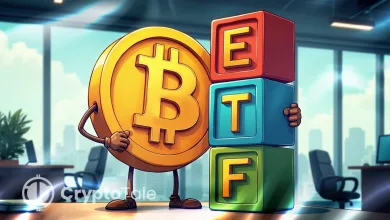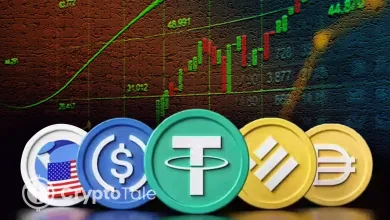CoinDCX Delists 50+ Margin Pairs Overnight: Is It the Next WazirX?

- CoinDCX delisted 50+ margin pairs without notice, triggering liquidations and tax events.
- Traders faced auto-liquidations, tax deductions, and no option to exit or withdraw assets.
- The move echoes WazirX’s past missteps and raises doubts about centralized exchange trust.
Traders across India were stunned after CoinDCX delisted over 50 margin trading pairs without advance notice. The abrupt move affected top tokens like Bitcoin, Ethereum, Solana, and XRP, triggering forced liquidations and unexpected profit bookings.
Users reported waking up to find that their trading pairs had vanished and their positions were locked. Margin trades were closed, and tax deducted at source (TDS) was triggered without warning. Many traders reported that they had no opportunity to exit positions or adjust their strategies.
CoinDCX offered only a brief explanation. In a brief update, it stated that the delistings were part of efforts to “enhance the trading experience.” The platform did not disclose the reason for removing heavily traded assets.
Traders Demand Transparency as Panic Spreads
The crypto community reacted swiftly. People shared their frustration and confusion on various social media platforms. They raised numerous questions regarding how liquid assets such as BTC/USDT and ETH/USDT can disappear overnight without a clear explanation.
Some have speculated that CoinDCX is attempting to reduce its exposure to margin trading amid growing scrutiny from Indian regulators. Others believed it could be shifting away from USDT due to compliance concerns.
CoinDCX has not clarified whether liquidity, internal risk controls, or regulatory pressure drove the move. Traders now fear a repeat of the WazirX disaster, which caused widespread panic in 2024 after a hack froze user accounts and drained funds.
In this case, there were no hacks, but the silent removal of core pairs and frozen user funds drew similar outrage. Several users claimed forced liquidations occurred without their consent. Others reported profit bookings that triggered tax events, with no chance to manually exit.
CoinDCX Move Shakes User Confidence
After this incident, users warned that exchanges like Binance, which offer global liquidity and wallet transfers, may take over the Indian market. The situation is more than a technical change. It’s all about protecting users and maintaining clear communication. Investors want to know: Were their funds sold? Were positions forcibly closed? Or if they can withdraw assets?
The controversy has already sparked legal questions. Some pointed out that if users were forced to exit without clear terms, the platform could face liability. Social media posts accused CoinDCX of favoring internal cleanups over investor interests. Some said the move was not just irresponsible but exploitative. Several traders asked whether civil compensation was owed due to forced sales and tax triggers.
Related: India Rejects BRICS Coin, Backs USD as Bitcoin Gains Ground
Critics also drew attention to how centralized exchanges in India operate in regulatory gray zones. With limited oversight, users often depend on platform trust rather than legal guarantees. After this, that trust has taken a serious hit. While CoinDCX continues to operate normally, confidence in its practices may not recover easily. Past issues with WazirX showed how fast reputations can collapse in the crypto scene.
CoinDCX has not provided any detailed updates on the matter since its initial announcement. Many users are still waiting to get updates. Until then, there will be increased concern over the safety of users and transparency in the future.
As India continues to shape its crypto laws, incidents like this may prompt regulators to enforce stronger investor protections. Centralized exchanges will need clearer policies and better communication. For now, the damage is done. Coins may be safe, but trust has been lost.




